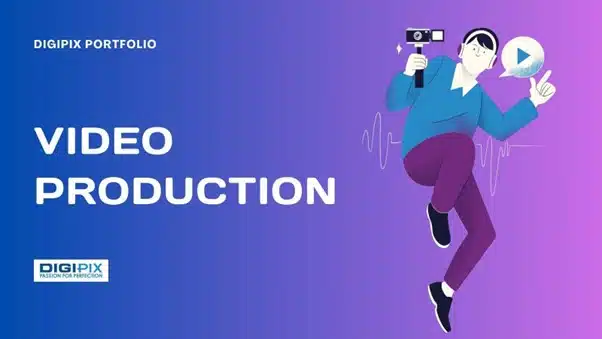LEADING SEMANTIC SEO SERVICES
SEMANTIC SEO SERVICES
Request A Quote
DigiPix Semantic SEO Services
“No matter how niche or mainstream your market is, great content remains a significant focus for SEO.”
With the evolving SEO trends, it's not just about keywords—search engines now prioritize understanding the meaning behind the search. At DigiPix, we specialize in Semantic SEO, a modern approach that optimizes your content for meaning and context rather than just keywords. By using proven techniques and semantic SEO tools, we help your site rank higher and engage users more effectively.

What Is Semantic SEO?
Semantic SEO focuses on optimizing your website’s content based on its meaning and context. Instead of concentrating merely on specific keywords, Semantic SEO checks that your content aligns with the objective behind user searches. This approach helps search engines understand and rank your content more accurately.
Koray Semantic SEO Approach
Incorporating Koray Semantic SEO techniques, we apply advanced strategies to enhance your site’s relevance and authority. Semantic SEO Koray emphasizes understanding the user's purpose and background relationships, setting a strong foundation for your content strategy.
Semantic SEO Strategy
Every website is unique, so we offer a customized Semantic SEO strategy according to your goals. By focusing on your specific needs and objectives, we make a plan that enhances your site's visibility and aligns with the latest Semantic SEO best practices.
In-Depth SEO Audit With Semantic Focus
Our process begins with a comprehensive SEO audit, focusing on semantic SEO example elements like content structure, entity relationships, and keyword context. This audit helps us to identify areas for improvement and develop a targeted plan for optimizing your site’s speed and performance.
Tools And Techniques For Effective Semantic SEO
To implement Semantic SEO, we utilize various semantic SEO tools designed to analyze and improve your content’s contextual relevance. These tools help us to refine your content to make sure it meets the latest SEO standards and effectively addresses user purpose.
Competitor Analysis For Semantic SEO
Understanding your competitors' approach to Semantic SEO provides valuable insights. We analyze their strategies to see how they utilize semantic techniques and apply this knowledge to enhance your website’s performance and competitive edge.
Optimize For Both Local And Global Searches
Whether your target audience is local or global, our Semantic SEO services guarantee your content is optimized for all markets. From local SEO enhancements to global contextual optimizations, we make sure that your site delivers a consistent and effective user experience everywhere.
Continuous Monitoring And Adaptation
SEO is an ongoing process. Our Semantic SEO services include continuous monitoring and adjustments to keep your content aligned with evolving search engine algorithms and user behavior. We guarantee that your site remains optimized and competitive in the long term.
Why Semantic SEO Matters For Your Business?
Here are some key benefits of semantic SEO:
Boost Search Engine Rankings
By focusing on meaning and context, Semantic SEO helps your site rank higher for relevant queries. Search engines reward content that aligns with searcher intent, improving your overall rankings.
Improve User Engagement
Content that matches user goals increases engagement and reduces bounce rates. By using Semantic SEO techniques, your site offers a better user experience, keeping visitors interested and encouraging them to explore your content further.
Increases Authority And Trust
Semantic SEO helps build your site’s authority by providing comprehensive, relevant content that establishes you as an industry expert. This increased authority leads to higher trust and more organic traffic.
Supports Voice Search Optimization
With the rise of voice search, Semantic SEO makes sure your content aligns with conversational queries, capturing voice search traffic and staying competitive.
Future-Proofs Your SEO Strategy
As search algorithms evolve, Semantic SEO keeps your strategy effective long-term by focusing on contextual relevance and user intent, guaranteeing you remain adaptable to changes in the SEO landscape.
“When you build this kind of trust with Semantic SEO, your target audience is more likely to pay attention to what you say, learn about your brand, and eventually use your products or services. 81% of people in a Market Force study are expected to do just that.”


Why Choose DigiPix For Semantic SEO?
Choosing DigiPix means partnering with experts who understand that Semantic SEO isn’t just about keywords—it's about getting to the heart of what your audience is searching for. We use the latest tools and strategies, including the Koray Semantic SEO approach, to make sure your content hits the mark. With DigiPix, you get a team dedicated to boosting your online presence and helping you stand out in the search results.
OUR WORKING PROCESS

DESIGNING
Meet the creative minds who turn ideas into stunning visuals. Our designers blend innovation with artistry to make your brand shine and stand out.

CONTENT WRITING
Our content writers are nothing short of wordsmiths. They use their inner drive and motivation to create engaging content that can captivate your audience.

DEVELOPMENT
When it comes to coding and creating websites, our developers are the best in the industry. They create high-performing websites and apps, delivering quality results.
Portfolio
Reviews
500+
Satisfied Customers
Your journey to digital success starts with our clients' stories.

DigiPix’s use of Koray Semantic SEO techniques transformed our content strategy, leading to significant improvements in our search rankings and user engagement.

Thanks to DigiPix’s Semantic SEO services and advanced tools, our website now ranks higher and attracts more organic traffic.





